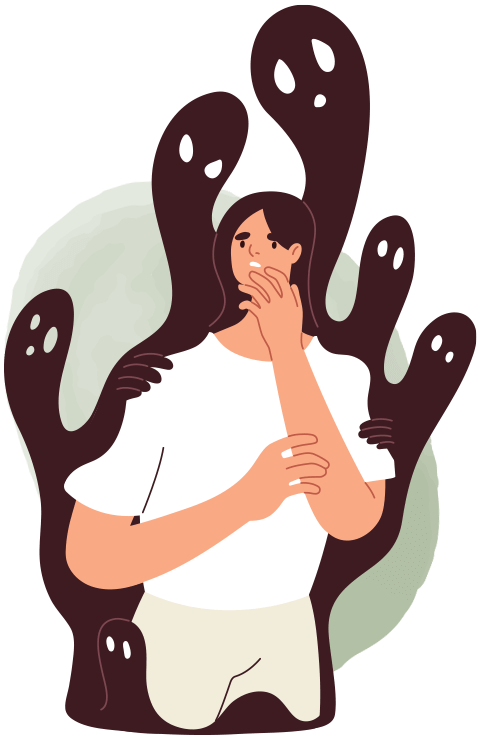Therapy for Anxiety
Support Line
Online Schedule
Therapy for Anxiety
An anxiety disorder is diagnosed when a person experiences anxiety at excessively high levels regularly. It’s a generalized, ambiguous, uneasy feeling of worry and trepidation. Anxiety can manifest itself in a variety of ways.
Symptoms of anxiety may include Not being able to concentrate, Dry mouth, Excessive worry or fear, Restlessness, Trembling and shaking, Inconsistent speech, Shortness of breath
There are several types of anxiety disorders like generalized anxiety disorder, social anxiety disorder, and Panic Disorder.
Our Approach
We offer evidence-based psychiatry and psychology services for the treatment of mental health disorders with an integrative and personalized approach.
Our Providers
A team of compassionate and competent clinicians, researchers, academicians, technology experts, and care associates ensure patient-centric comprehensive mental healthcare.
Our Space
Thoughtfully designed Safe, confidential, and non-judgmental therapeutic space.

Therapy for Anxiety:
CBT
The purpose of cognitive-behavioral therapy (CBT) is to discover and understand your negative thinking and poor behavior patterns, then replace them with more realistic thoughts, actions, and coping methods. After you begin to understand your anxiety and triggers, you can learn to use the coping methods you acquired in CBT to manage fright, panic, and concern.
Exposure Therapy
The therapist will gradually introduce you to anxiety-inducing stimuli during exposure therapy. This is frequently accomplished through the use of a technique known as “systematic desensitization,” which entails three steps:
- RELAX: To help you cope with anxiety, your therapist will teach you relaxation techniques. Progressive muscular relaxation, deep breathing, meditation, and guided imagery are all examples of relaxation training.
- LIST: Make a list of your anxiety-inducing triggers and rank them according to their severity.
- EXPOSE: In this final step, you’ll progressively work your way through the anxiety-provoking things or situations you’ve highlighted, incorporating relaxation techniques as needed.
DBT
DBT focuses on assisting you in developing a “dialectical” (opposite) perspective, acceptance, and change. You’ll learn to accept your anxiety while also actively attempting to alter it during DBT treatment.
Treatment with DBT teaches four important skills:
- Mindfulness: Connecting with the present moment and noticing passing thoughts (such as anxiety) without being governed by them.
- Distress tolerance: Managing anxiety when confronted with a difficult scenario.
- Interpersonal effectiveness: Knowing when to say no or when to ask for what you require
- Emotion regulation: Keeping anxiety under control before it spirals out of hand.
ACT
It is another type of therapy that has been demonstrated to be useful for a range of anxiety problems. ACT focuses on identifying personal values and then acting in ways that reflect those ideals.
Psychoanalytic Therapy
In psychoanalysis, the patient and the therapist look into their thoughts, worries, and desires to better understand themselves and reduce anxiety.
IPT
It is a type of psychotherapy that focuses on social roles and relationships. In IPT, patients work with the therapist to identify any interpersonal issues they might be dealing with, such as unresolved grief, disputes with family or friends, changes in job or social roles, and interpersonal problems. After that, they will discover appropriate ways to express emotions and how to improve interpersonal communication.





